News
Redistributing unwanted food to those in need: A cost- and hassle-free solution
4 Oct 2023
London-based charity City Harvest is solving the longstanding issues of food waste and hunger by providing food businesses with a convenient and cost-free solution to redistributing food waste.
In Europe, 36.2 million people cannot afford to eat a quality meal every second day. At the same time, as much as 40% of all food produced for human consumption globally is wasted or lost.
7765%202426.png)
The cost of this food waste amounts to a total of almost €150 billion annually in Europe alone and on a global scale, rises to a staggering $1 trillion, the UN Food and Agriculture Organization (FAO) estimates. Discarding surplus food is also highly costly and resource intensive for food producers and suppliers.
UK food waste charity City Harvest is tackling this issue by providing food businesses with a cost-effective and convenient solution to redistributing food waste that benefits the most disadvantaged members of society.
“As key players in the food industry, farmers, manufacturers and retailers can eliminate costs associated with storage, transportation and the disposal of food surplus by the simple act of redistributing it to those in need,” said Mary Parsons, head of food at City Harvest.
Food waste and hunger: Killing two birds with one stone
City Harvest rescues surplus food that would otherwise have gone to waste from across the UK supply chain and redistributes it to over 350 food-based charities across London including foodbanks, homeless centres, and community kitchens, free of charge. The charity work alongside diverse partners such as farmers, manufacturers, suppliers, and retailers to support disadvantaged groups including low-income families, refugees, and the elderly and socially isolated.
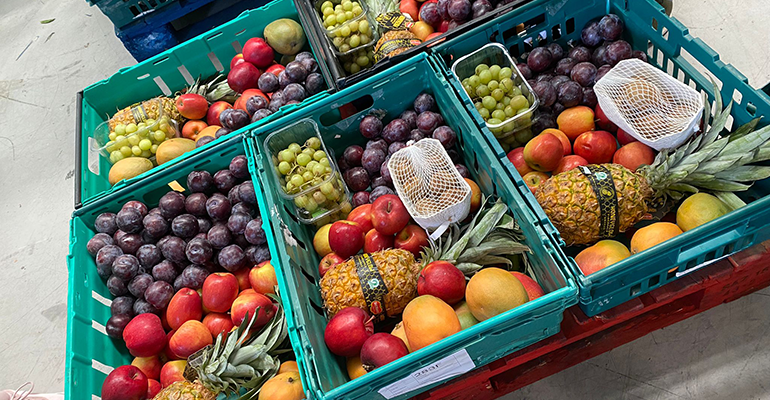 Image provided by City Harvest
Image provided by City Harvest
“Working with City Harvest to divert good food is easy, and its benefits manifold. By re-distributing food that would otherwise be wasted, we make businesses more sustainable and deliver clear positive social and environmental impact,” Parsons said.
To address the dual burden of food waste and malnutrition, the organisation run a range of initiatives with diverse industry stakeholders. One such initiative, Harvest for Hunger is a farm gate programme that allows food growers, packers, and producers to manage food surplus sustainably, without incurring costs. Collection of food waste can be arranged for free with the charity at locations across the country within 24 hours.
“It is groundbreaking for growers who have no choice but to plough back into the ground, as it costs too much to do anything else with the surplus crop,” said Parsons.
City Harvest also collaborates with third-party holiday hunger programmes and schools to ensure that children have access to nutritious food at times when schools are closed and when families have less support.
“Our vans deliver every day around London, so for us, every day is a food emergency – it’s about working out how best to join the dots,” said Parsons.
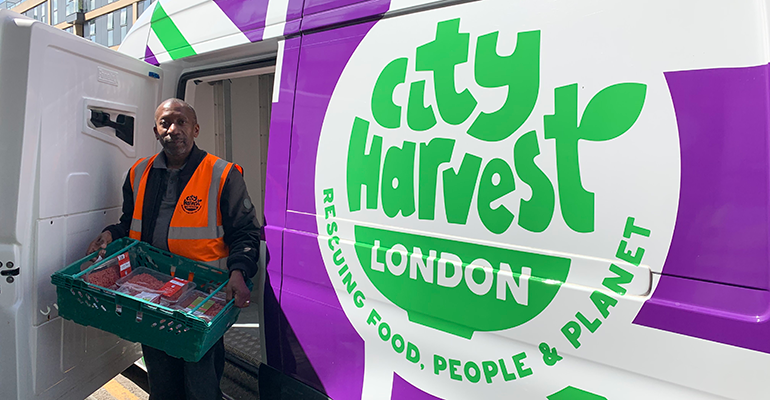 Pictured: Cliff Jubilee Van | Image provided by City Harvest
Pictured: Cliff Jubilee Van | Image provided by City Harvest
Taking the stress out of food redistribution
Including losses from the early stages of production, such as harvesting and processing, all the way to retail and consumption, food waste represents a significant financial burden for producers. Yet waste redistribution is often viewed as a timely and costly task with significant regulatory and health considerations.
Working with food producers across the UK, City Harvest track stock across a range of factors that may result in it being unwanted. This includes food that is close to its shelf life, has been incorrectly forecasted, is part of a development trial, is packed incorrectly, and is non-compliant with quality-control grades or specifications. In line with food safety and distribution standards, the charity requires producers to label food with a title, ingredient declaration and allergen information, and a ‘use by’ or ‘best before’ date before collection.
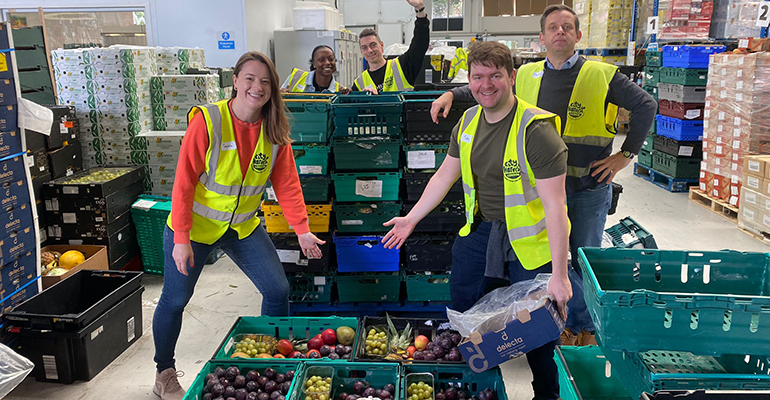 Image provided by City Harvest
Image provided by City Harvest
“We have a strict chill chain and ensure our community partners are fully food safety accredited with the correct storage facilities to ensure the chill chain is not broken at any stage. Fresh produce is obviously simpler,” Parsons said.
Ticking the ESG checkbox
Producers that partner with the organisation can access data informing them on the impact of donations in terms of kilograms rescued, meals delivered, and greenhouse gas emissions prevented. This data, along with community case studies from food beneficiaries, helps manufacturers to track and document progress across environmental, social, and governance (ESG) and comprehensive credit reporting (CCR) criteria.
“Our donors save money on haulage to landfill, plus fees for disposal. When I worked in the fruit industry, we used to talk about the best ‘worst-decision’. Having no achievable margin in a load of fruit and finding the best margin-mitigating route out of our system possible. Everything, other than donating to a charity has a cost associated with it that deepens the loss financially,” said Sarah Calcutt, CEO of City Harvest.
“One of our donors calls the bins of ‘ugly apples’ he donates to us his ‘steps to heaven’. We save him money & make him feel a little better for not being able to sell them.”
Examples of food companies that partner with the charity include vegetable wholesaler Wholegood, American multinational restaurant distributor Sysco, and ingredient supplier Belazu.
“Knowing that since we started working with CityHarvest in 2018 we’ve donated over 600,000 meals to people that need them really fills us with joy. Being able to distribute our food quickly, to the people that need it, is extremely valuable for Wholegood. We’re a business that really believes in purpose. So, even at the point where we’ve got produce we can no longer sell, we know it goes to people that need it,” said Wholegood founder & CGO.
Benefiting the bottom line, without wasting time and resources
As well as helping those in need, food donors receive a social return on investment when they donate to City Harvest.
“For every tonne of surplus food that is redistributed, City Harvest delivers an estimated £3,550 of positive impact for food recipients and food donors, translating to 2,400 meals to those in need,” Parsons explained.
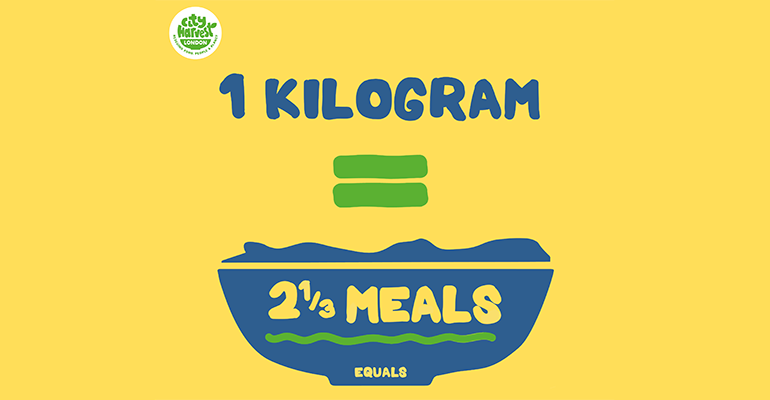 Image provided by City Harvest
Image provided by City Harvest
“Redistribution services generate financial benefits and positive social impact, which businesses can engage, when they partner with redistribution organisations like City Harvest.”
A new report conducted by the charity with Bain & Co investigating the behaviour and attitudes of food companies and key opportunities for the sector found that waste disposal was the number one cost-saving benefit for redistribution amongst donors, yet only 37% of recognise the financial value of redistribution where ESG and CSR reporting and fostering consumer trust are concerned.
The research, which collected survey data from the charity’s donors, provides an insight into the industry’s perspective on the topic of food redistribution. It found that 88% of donors find redistribution with City Harvest to be effortless. The Food Report will be published as part of a harvest festival ceremony at St. Pauls Cathedral in London on 1 October this year.
Related news

UK Government overhauls childhood obesity strategy
21 Nov 2025
The UK Government has announced a new package of measures designed to reverse the nation’s childhood obesity epidemic following the release of statistics revealing the scale of the crisis.
Read more
Nitrites: Pressure grows on UK to follow EU’s lead
20 Nov 2025
Pressure is growing on the UK to follow the EU’s lead after the bloc revised its regulations on the permitted levels of nitrites and nitrates in cured meats.
Read more
How younger consumers are redefining ingredient choices and rejecting brand loyalty
18 Nov 2025
Gen Z and millennial consumers’ preferences for transparency, functionality, and purpose are “redefining the very nature of consumption itself”, says SPINS.
Read more
Soy story: WWF scores UK supermarkets on sustainability efforts
12 Nov 2025
WWF has published its latest “Soy Scorecard”, ranking UK supermarkets’ efforts to combat deforestation and land conversion in their soy supply chains.
Read more
New UPF standard hoped to offer consumers ‘coherence and clarity’
10 Nov 2025
Ingredients companies are being urged to enter “a new era of partnership and innovation” following the launch of the industry’s first non-UPF verification scheme.
Read more
Could plant-based protection replace plastic packaging?
29 Oct 2025
Swedish foodtech company Saveggy has launched an additive-free plant-based protection for cucumbers, offering a waste-free packaging solution for fruit and vegetables.
Read more
Does promoting protein content push up plant-based sales?
27 Oct 2025
Promoting the protein content of meat-free products is a more effective sales strategy than adding carbon labels, a study of UK bakery chain Greggs suggests.
Read more
NMN: An on-trend ‘fountain of youth’ ingredient for anti-ageing products
24 Oct 2025
Dubbed an “on-trend fountain of youth ingredient” by Mintel, NMN is booming in anti-ageing ingestible products in Asia – but regulatory roadblocks are thwarting NPD efforts elsewhere, say experts.
Read more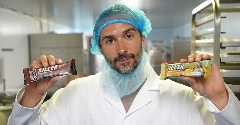
Will Wicks’ Killer Bar harm the protein bar category?
23 Oct 2025
Joe Wicks’ deliberately dangerous protein bar is fuelling anti-UPF sentiment – but there are concerns that his messaging is misguided and could have unintended consequences.
Read more
Amazon Grocery launch aims to balance quality with affordability
22 Oct 2025
Global e-commerce giant Amazon has introduced a new private-label food brand, combining existing Amazon Fresh and Happy Belly products with new everyday items.
Read more